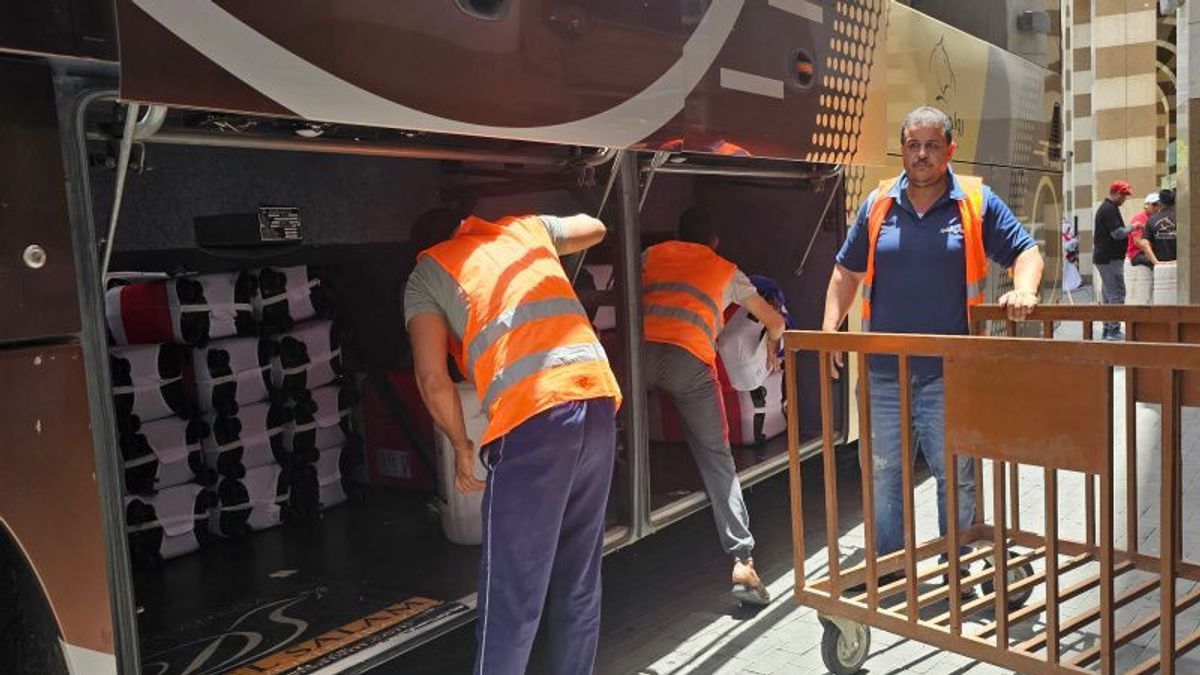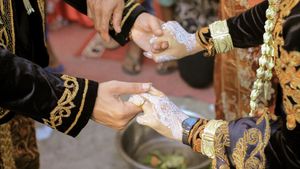YOGYAKARTA For prospective Indonesian pilgrims who plan to leave this year, it is advisable to find out what events must be brought by the 2024 Hajj pilgrims. In addition, the congregation must also know what items should not be brought during the pilgrimage.
The proposal for the completion of the hajj will help make it easier for pilgrims while in the Holy Land. Meanwhile, goods that are prohibited from being brought during Hajj are related to safety so it needs to be considered.
It should be noted that pilgrims will travel for 30 days including the departure and repatriation period. During these 30 days, pilgrims are expected to have prepared all daily needs, both related to personal clothes and medicines.
The Hajj equipment that must be brought is explained by the Ministry of Religion through its website. Here are the details.
General equipment for the pilgrimage must be carried by both male and female pilgrims, adults and children. Some of these equipment are as follows.
In the context of the pilgrimage, pilgrims are advised to bring daily clothes. It is recommended to adjust daily clothes to the season in Saudi Arabia. In addition, it is recommended to bring clothes for worship to the mosque more than 3 pieces. Examples of daily clothes for Hajj services such as jackets, sweeps, socks, caps, mukena, t-shirts, sarongs, internals, and so on.
The ihram cloth is clothes that are used when entering the prayer area in the Tawaf area of the Grand Mosque. Men's ihram clothes themselves consist of two white cloth that is not sewn. While women's ihram clothes are Muslim clothes, they must cover the aurat and not be seen. It is recommended to bring more than two pieces.
It is required for pilgrims to maintain the cleanliness and hygiene of the body so they need to carry toiletries. Some medical equipment that needs to be carried such as towels, soap, brushes and toothpaste, shampoo, and so on.
Hajj pilgrims are required to bring important documents during their pilgrimage. Take care of the document so that there are no problems. Some of these documents are passports and visas (original and photocopy), spare identity photos, administrative lists of Hajj trips (DAPIH), Hajj Pilgrims Health Cards (KKJH), istitha'ah evidence documents, vaccine evidence (including vaccines meningitis, influenza, and COVID-19. Read the list of vaccines for pilgrims), evidence of examination results of fertile age women (WUS), copies of drug prescriptions (if under certain treatment), health insurance, and bring friends or family identities that can be contacted. In addition, pilgrims can carry hajj rituals books and prayers.
It is recommended to bring personal medicines and first aid so that when the pilgrims encounter problems with their health, they can be treated independently.
In general, pilgrims are not allowed to carry luggage that is prohibited by government regulations, both from Indonesia and Saudi Arabia. Some examples of items that are prohibited from being brought during Hajj are as follows.
That's information regarding the equipment that must be brought by the 2024 Hajj pilgrims. Visit VOI.id to get other interesting information.
The English, Chinese, Japanese, Arabic, and French versions are automatically generated by the AI. So there may still be inaccuracies in translating, please always see Indonesian as our main language. (system supported by DigitalSiber.id)













